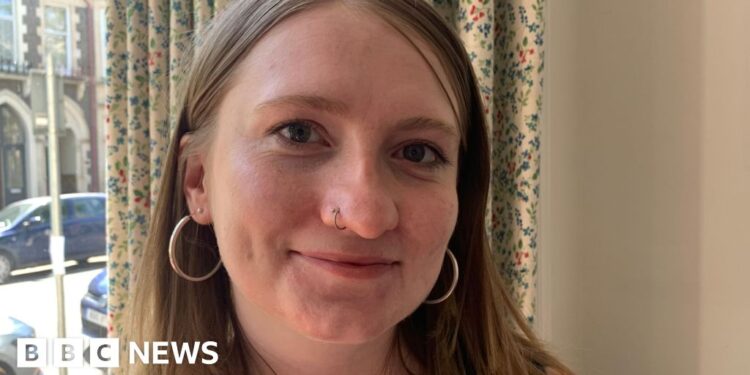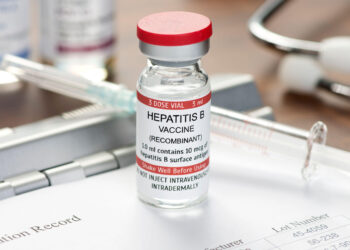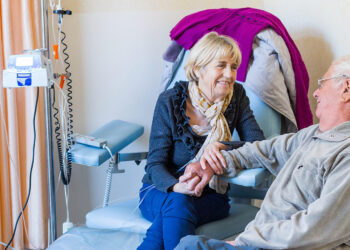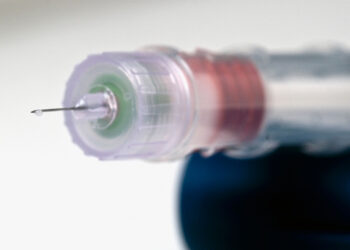BBC Wales News
 BBC
BBCIf 29-year-old Marianne Barry doesn’t take the contraceptive pill each day, she could have symptoms of severe anxiety or even suicidal thoughts.
Marianne has pre-menstrual dysphoric disorder (PMDD), a condition which affects as many as 8% of women, but for which the average wait time for a diagnosis is around 12 years.
Contraception remains the primary course of treatment for women living with PMDD, but for women who wish to become pregnant this poses a dilemma.
“I want to have a child, but I also want to be sane,” said Marianne.
The Welsh government said it was “determined to improve the diagnosis, treatment and awareness of conditions affecting women”, including PMDD.
Marianne, a teaching assistant from Cardiff, spent eight years going back and forth to her GP before seeking a private diagnosis two years ago, when her symptoms became overwhelming.
“I would wake up in the morning and I could feel this thing bubbling up inside of me,” she said.
“It was like my brain was almost hot with feelings of anger, being upset, anxiety – the anxiety was just insane.”
She began to realise that her symptoms coincided with her menstrual cycle, and started to make a record of them.
“I could feel it and I’d go ‘OK, well I know my period’s coming.'”
Before she was prescribed the contraceptive pill, Marianne’s symptoms would re-appear each month, which she said left her in a constant cycle of anxiety.
“You almost feel like you’ve made it up because you have this really bad low and then everything seems to start getting better again as you’re coming towards that ovulation period.”
What is PMDD?
According to the NHS, symptoms of PMDD are “similar to PMS, but are much more intense and can have a much greater negative impact on your everyday life”.
Symptoms can include:
- Headaches and joint and muscle pain
- Overeating and problems sleeping
- Feeling very anxious, angry, depressed or suicidal.
The exact cause of PMDD is not fully understood, but the average wait time for a diagnosis is around 12 years in Wales.
Dr Llinos Roberts, a GP, believes this is due to a lack of research.
“The treatment options are somewhat limited and I think this reflects the lack of research historically that’s gone into health issues particularly affecting women,” said Dr Roberts.
“The options we have are contraception, which helps reduce the symptoms of PMDD. Also you’ve got the options of treating the actual symptoms with CBT and antidepressants.”

For Marianne, who wants children in the future, the idea of coming off her medication and her symptoms potentially returning is too daunting for her.
“There’s no certainty that you’re going to get pregnant, you don’t know how long it’s going to take. So, I want to have a child but I also want to be sane,” she said.
“I’m too scared to come off my pill now.”

Corinne Sinclair, 30, from Cardiff, was diagnosed with PMDD two months ago and is currently trying for a baby.
Antidepressants are her only treatment option but she has been told by doctors that if she gets pregnant, she will have to think about coming off those too.
“I think more research could be done into PMDD to give women more options that isn’t just taking the contraceptive pill,” said Corrine.
“It’s a bit of a cop-out really and I feel they tend to do that with a lot of women’s issues.”
Corinne also has endometriosis, which can make conceiving a child more difficult.
She said the worry of this, and the potential return of her PMDD symptoms – which include dark thoughts and struggling to find the motivation to get out of bed – caused her a lot of stress.
“When you’re trying for a baby, it’s supposed to be an exciting and happy time and it is, and I’m still hopeful and looking forward to it, but there is that niggly worry at the back of your head,” she said.
“After having the baby, am I going to suffer with my mental health?
“During pregnancy, am I going to be really unwell mentally?”
No silver bullet
Dr Roberts said PMDD could be difficult to diagnose as it was often mistaken for depression or anxiety.
She advised women with suspected PMDD to keep a detailed diary of their symptoms, to keep track of when they occur and subside, and to provide that evidence to their GP.
She said there was no silver bullet for women with PMDD who wanted to have children.
“This can be very challenging for women who want to conceive but know that if they come off their contraception that’s likely to exacerbate their PMDD symptoms,” she said.
“If they’re somebody who has significant PMDD symptoms, it’s a matter of balancing the pros and cons of coming off contraception.”
The Welsh government said its Women’s Health Plan for Wales outlined how it was “determined to improve the diagnosis, treatment and awareness of conditions affecting women”.
“Pre-menstrual dysphoric disorder (PMDD) is included as part of the menstrual health priority area within the plan,” a spokesperson said.
“Funding of £3m will be used to deliver the actions in the plan.”
Additional reporting by Dani Thomas.
Source link : https://www.bbc.com/news/articles/c0mr8lj3kd7o
Author :
Publish date : 2025-05-23 22:00:00
Copyright for syndicated content belongs to the linked Source.















